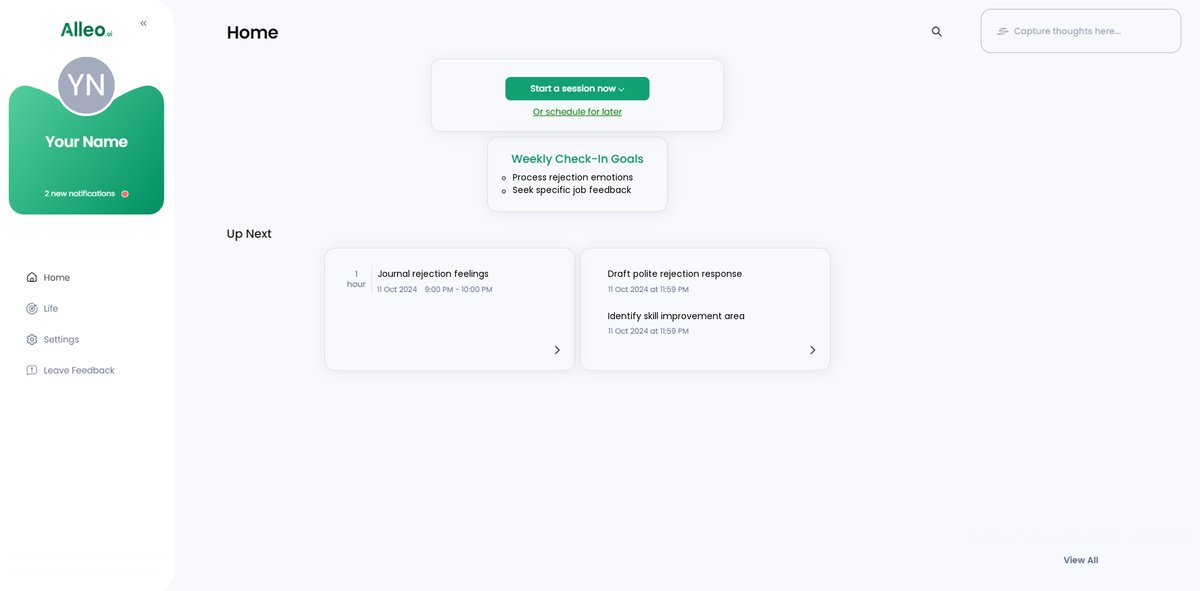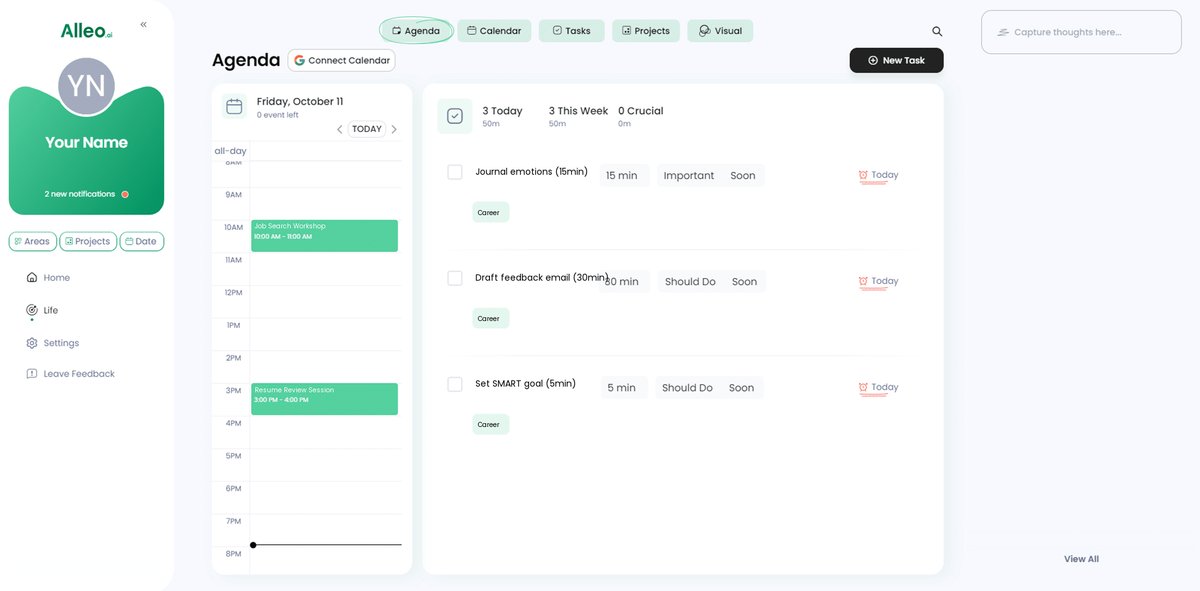How to Handle Job Rejection Gracefully: 6 Powerful Strategies for Young Professionals
Have you ever felt the sting of job rejection, wondering if you’ll ever land that perfect role? Handling job rejection professionally is a crucial skill for any job seeker.
As a life coach, I’ve guided many young professionals through this challenging phase of entry-level career setbacks. I understand the impact of impulsive reactions and the value of taking time to process emotions thoughtfully, which is essential for building professional resilience.
In this post, you’ll learn actionable strategies to handle job rejection gracefully. We’ll cover everything from processing emotions to maintaining professionalism and building resilience. These job rejection coping strategies will help you overcome career disappointments and maintain a positive mindset in job hunting.
Let’s dive in to discover effective ways of handling job rejection professionally and keeping your job search motivation high.

The Emotional Rollercoaster of Job Rejection
Handling job rejection professionally can feel like a punch to the gut. This is especially true for young professionals facing entry-level career setbacks, often experiencing this for the first time.
Many clients initially struggle with impulsive reactions, which can damage future opportunities and hinder professional resilience building.
In my experience, emotional responses like anger or despair are common when dealing with job rejection. These reactions can lead to hasty decisions, such as sending a rushed email instead of seeking constructive feedback from interviews.
This approach can close doors rather than keep them open, impacting networking after job rejection.
Repeated rejections take a mental toll. It’s not just about one lost job; it’s about the cumulative impact on self-esteem and job search motivation.
This emotional burden makes it crucial to approach handling job rejection professionally and thoughtfully, focusing on resume improvement after rejection and maintaining a positive mindset in job hunting.

A Roadmap to Gracefully Handle Job Rejection
Overcoming this challenge of handling job rejection professionally requires a few key steps. Here are the main areas to focus on to make progress in building professional resilience and coping with entry-level career setbacks.
- Allow Time to Process Emotions Before Responding: Step away to gain perspective and practice job rejection coping strategies.
- Practice Active Listening and Seek Feedback: Focus on understanding and request specific areas of improvement, gathering constructive feedback from interviews.
- Reframe Rejection as a Learning Opportunity: View rejection as feedback, not failure, to maintain job search motivation.
- Maintain Professionalism in Follow-Up Communication: Craft polite responses and stay connected, focusing on networking after job rejection.
- Develop a Support Network for Emotional Resilience: Reach out to friends and join support groups to help overcome career disappointments.
- Focus on Self-Improvement and Skill Development: Identify skill gaps and seek mentorship for resume improvement after rejection.
Let’s dive in to explore these strategies for handling job rejection professionally!
1: Allow time to process emotions before responding
It’s crucial to give yourself time to process emotions before reacting to job rejection, a key aspect of handling job rejection professionally.
Actionable Steps:
- Take a Break: Step away from the situation to gain perspective. Set a timer for 24 hours before responding to any rejection email or feedback, allowing time for constructive feedback from interviews to sink in.
- Journal Your Feelings: Write down your immediate thoughts and emotions. Spend 10-15 minutes journaling about the rejection to process your feelings, aiding in self-reflection for job seekers.
Explanation: Allowing time to process your emotions helps prevent impulsive reactions that could close future opportunities. By giving yourself a day to reflect, you can respond more thoughtfully and professionally, which is essential in overcoming career disappointments.
This approach aligns with expert advice on managing rejection, as highlighted here, which emphasizes the importance of processing emotions and setting a time limit to avoid dwelling, crucial for maintaining job search motivation.
Some effective strategies for processing emotions and building professional resilience include:
- Practice deep breathing exercises
- Engage in physical activity or exercise
- Talk to a trusted friend or family member
Taking time to reflect ensures your responses are measured and professional, setting the stage for constructive feedback and future opportunities. This reflection period is particularly valuable for those dealing with entry-level career setbacks and can contribute to developing a positive mindset in job hunting.

2: Practice active listening and seek feedback
Active listening and seeking feedback are crucial elements in handling job rejection professionally. These practices help you grow from the experience and improve for future opportunities.
Actionable Steps:
- Listen attentively: When receiving feedback, focus on understanding rather than reacting. Repeat back what you heard to confirm understanding, which is essential for overcoming career disappointments.
- Ask for specific feedback: Request detailed areas of improvement from the employer. Send a polite email asking for constructive feedback from interviews on your application or interview performance.
Explanation: Practicing active listening and seeking constructive feedback are crucial for personal and professional growth, especially when coping with job rejection.
By truly understanding the feedback, you can identify areas for improvement and make necessary changes, which is key to building professional resilience.
This approach aligns with expert advice on responding to negative feedback, which emphasizes the importance of listening and asking for specific improvement areas to enhance your skills and opportunities, helping you maintain a positive mindset in job hunting.
By engaging in these practices, you can turn rejection into a valuable learning experience and better prepare for future job opportunities, effectively handling job rejection professionally.

3: Reframe rejection as a learning opportunity
Reframing rejection as a learning opportunity helps transform setbacks into growth moments, enhancing both personal and professional development when handling job rejection professionally.
Actionable Steps:
- Change Your Perspective: View rejection as constructive feedback from interviews rather than a personal failure. List three things you learned from the experience, focusing on overcoming career disappointments.
- Set New Goals: Use the feedback to set actionable goals for improvement. Create a SMART goal based on the feedback received, such as improving a specific skill to build professional resilience.
Explanation: Viewing rejection as a learning opportunity equips you with valuable insights for future applications. This mindset shift helps build resilience and enhances your professional growth, crucial for entry-level career setbacks.
For instance, experts suggest that learning from rejection can lead to better outcomes in your career. For more on job rejection coping strategies, check out this LinkedIn article.
Taking these steps ensures that each rejection moves you closer to success, fostering continuous improvement and resilience. This approach is key to maintaining job search motivation and a positive mindset in job hunting.

4: Maintain professionalism in follow-up communication
Maintaining professionalism in follow-up communication is crucial for handling job rejection professionally and leaving a positive impression while keeping doors open for future opportunities.
Actionable Steps:
- Craft a Polite Response: Thank the employer for the opportunity and express continued interest. Prepare a response template that acknowledges the rejection and shows gratitude, demonstrating professional resilience building.
- Stay Connected: Keep in touch with potential employers for future opportunities. Send a LinkedIn connection request or a brief email update after a few months, which is an effective networking after job rejection strategy.
Explanation: These steps help you build a positive reputation and maintain professional relationships, which can lead to future opportunities and assist in overcoming career disappointments.
By crafting a polite response, you demonstrate maturity and professionalism when handling job rejection professionally. Staying connected can also help you in networking and maintaining job search motivation.
For further insights, check out this guide on responding to rejection emails. Keeping the communication lines open shows that you value the connection and are interested in future roles, which is essential for entry-level career setbacks.
Key elements of a professional follow-up response:
- Express gratitude for the opportunity
- Reaffirm your interest in the company
- Request to be considered for future openings
By following these steps, you ensure that rejection is not the end of the conversation, but rather a stepping stone to future opportunities. This approach supports self-reflection for job seekers and helps maintain a positive mindset in job hunting.

5: Develop a support network for emotional resilience
Building a support network is crucial for emotional resilience when handling job rejection professionally.
Actionable Steps:
- Reach out to friends and family: Schedule regular calls or meet-ups with supportive friends or family members to share your experiences and discuss job rejection coping strategies.
- Join a support group: Connect with others facing similar challenges by attending local or online meetup groups for job seekers to overcome career disappointments together.
- Seek mentorship: Find a mentor in your field who can offer guidance and support during your job search. Reach out to professionals you admire and request a mentorship meeting to discuss entry-level career setbacks and professional resilience building.
Explanation: Developing a support network provides emotional stability and practical advice during your job search, helping you handle job rejection professionally.
Friends, family, and mentors can offer encouragement, helping you stay motivated. According to experts, seeking support boosts resilience and improves job search outcomes.
Staying connected with others who understand your journey can make the process less isolating and more manageable, providing job search motivation tips and opportunities for networking after job rejection.
These steps help build a strong foundation of emotional resilience, preparing you to handle future rejections with grace and maintain a positive mindset in job hunting.

6: Focus on self-improvement and skill development
Focusing on self-improvement and skill development is crucial for handling job rejection professionally and turning it into an opportunity for growth.
Actionable Steps:
- Identify Skill Gaps: Evaluate the feedback received from interviews to pinpoint areas for improvement. Enroll in a relevant online course or workshop to address these gaps and overcome entry-level career setbacks.
- Seek Mentorship: Find a mentor in your field to guide and support your professional resilience building. Reach out to professionals you admire and request a mentorship meeting to enhance networking after job rejection.
- Set Personal Goals: Define clear, attainable goals for skill enhancement. Create a SMART goal plan to track your progress and stay motivated during your job search.
Explanation: These steps are essential for continuous improvement and staying competitive in your job search. By identifying and addressing skill gaps, you enhance your marketability and learn job rejection coping strategies.
Seeking mentorship offers valuable insights and networking opportunities. According to experts, setting personal goals provides direction and motivation for overcoming career disappointments.
For more on goal-setting strategies, check out this guide on personal growth.
Benefits of focusing on self-improvement:
- Increased confidence in your abilities
- Enhanced competitiveness in the job market
- Personal growth beyond career advancement
Taking these steps ensures that each rejection becomes a stepping stone to future success, helping you maintain a positive mindset in job hunting and handle job rejection professionally.

Partner with Alleo to Handle Job Rejection Gracefully
We’ve explored the challenges of handling job rejection professionally and the steps to navigate it. Did you know you can work directly with Alleo to make this journey easier and build professional resilience?
Set up an account with Alleo and create a personalized plan for handling job rejection professionally. Our AI coach provides tailored coaching support, just like a human coach, offering job search motivation tips and strategies for overcoming career disappointments.
Alleo will follow up on your progress and keep you accountable via text and push notifications, helping you maintain a positive mindset in job hunting and encouraging self-reflection for job seekers.
Ready to get started for free and learn effective job rejection coping strategies? Let me show you how!
Step 1: Log In or Create Your Alleo Account
To begin your journey of handling job rejection gracefully with AI coaching, log in to your existing Alleo account or create a new one if you’re just getting started.

Step 2: Choose Your Focus Area
Select “Setting and achieving personal or professional goals” to start addressing the challenges of job rejection by setting clear objectives for your growth and development, helping you turn setbacks into opportunities for improvement.

Step 3: Select “Career” as Your Focus Area
Choose “Career” as your life area to concentrate on overcoming job rejection, developing professional resilience, and enhancing your job search skills with tailored guidance from Alleo.

Step 4: Starting a Coaching Session
Begin your journey with Alleo by participating in an intake session, where you’ll discuss your job search challenges and set up a personalized plan to gracefully handle rejections and improve your career prospects.

Step 5: Viewing and Managing Goals After the Session
After your coaching session on handling job rejection, check the Alleo app’s home page to view and manage the goals you discussed, helping you stay focused on your personal growth and career development.

Step 6: Adding events to your calendar or app
Track your job search progress by adding key events and tasks to the Alleo app’s calendar feature, allowing you to visualize your journey and stay motivated through each step of handling job rejection gracefully.

Embracing Job Rejection with Grace and Growth
Now that we’ve explored the steps to handling job rejection professionally, let’s recap.
Facing job rejection is tough, but with the right approach, it can be a catalyst for professional resilience building. By taking time to process emotions, you avoid impulsive reactions that might close future doors.
Listening actively and seeking constructive feedback from interviews helps you learn and improve. Reframing rejection as a learning opportunity builds resilience and professional growth, essential for overcoming career disappointments.
Maintaining professionalism and developing a strong networking after job rejection further bolster your emotional stability.
Focusing on self-reflection for job seekers ensures that every rejection moves you closer to success. Remember, you’re not alone in this journey of handling job rejection professionally.
Leverage Alleo to stay on track, set goals, and build resilience. Sign up today and let Alleo be your guide in developing job rejection coping strategies and maintaining a positive mindset in job hunting.